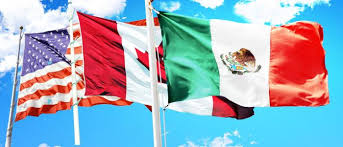
When President Trump pulled the United States out of the Trans-Pacific Partnership agreement at the beginning of his presidency, he emphasized his interest in negotiating trade deals on a bilateral basis. Nearly three years later, he can point to

This post presents a paper that examines the numerous derogations from the most-favored-nation (MFN) principle applied by parties to the WTO Government Procurement Agreement (GPA). Reciprocity conditions are attached to every element of market access

On May 30, the U.S. Trade Representative (USTR) took a step forward in its efforts to obtain Congress’s approval of the U.S.-Mexico-Canada Agreement (USMCA), with its submission of a draft Statement of Administrative Action (SAA) to congressional

In mid-May, President Trump determined that imports of autos and auto parts threaten the national security but deferred action for six months. He also lifted tariffs on imports of steel and aluminum from Canada and Mexico. This post looks at the two

Just when President Trump seemed on the brink of concluding a comprehensive trade agreement with China, the talks fell apart on May 10, and he responded with more tariffs. In light of the set-back, this post considers how Trump’s approach to trade
The U.S. trade advisory committees have weighed in with their assessments of the U.S.-Mexico-Canada Agreement (USMCA), measuring it against the North American Free Trade Agreement (NAFTA), which it will replace. This post highlights the committees’
At the 11th hour on September 30, the United States, Mexico and Canada agreed to replace the North American Free Trade Agreement (NAFTA) with a new agreement, entitled the United States-Mexico-Canada Agreement (USMCA). The Trump administration describes the
The United States and Mexico reached agreement on August 31 to modernize the North American Free Trade Agreement (NAFTA). USTR fact sheets describing the results made no mention of government procurement. However, according to Politico’s Morning Trade,
The re-negotiations of the North American Free Trade Agreement (NAFTA) are entering their 9th month with no clear indication of when or how they might be concluded. President Trump has alternated between supporting the negotiations and threatening to withdraw
In March, the president exercised his authority under Section 232 of the Trade Expansion Act of 1962 to impose 25% tariffs on steel imports and 10% tariffs on aluminum imports, based on findings that the imports threatened the national security. The tariffs